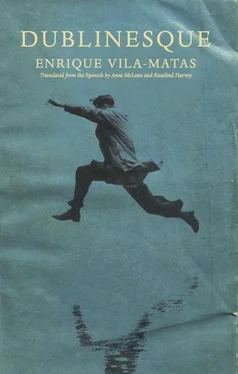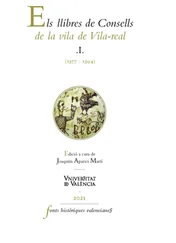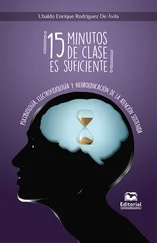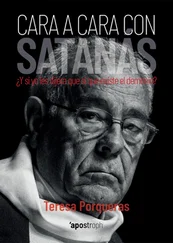In the Eixample district of Barcelona, like anywhere else, there are many casual encounters. It’s a well-known fact: life is governed by coincidences. Although at first glance it might seem so, the encounter Riba just had with Ricardo on Calle Mallorca is not at all casual.
“Well, what do you know. Always someone turns up you never dreamt of,” Ricardo says with a broad smile.
No, not a casual encounter, although Ricardo might think it is. They’ve just practically collided head on and actually bumped into each other, their two umbrellas nearly flying out of their hands. Riba calculated it all so it would happen like this, and now pretends to Ricardo that he was simply heading to La Central, the bookshop a couple of steps from here, on the same street. The truth is different: he’s spent over an hour across the street waiting for his friend to come out of his house so he could feign a fortuitous encounter. What he is about to propose could never be achieved over the phone. He knows it will turn out well only if there’s a conversation in some café, or in the bookshop itself; a conversation that paves the way so that, when the opportune moment arrives, the proposal of Ricardo coming to Dublin appears quite spontaneous. After all, he’s the most ardent Anglophile of all his friends, a tireless reviewer of books from English-speaking countries. Surely it might interest him to attend his first Bloomsday. Ricardo, moreover, is a world authority on writers such as Andrew Breen and Derek Hobbs, modest Irish writers whom Riba, following Ricardo’s advice, had translated and published in Spanish when they were — they still are — completely unknown.
Apart from being a reviewer and discoverer of English-speaking talents, Ricardo is also an interesting novelist: ultra postmodern at times, more conventional at others. He likes to have, at least, two literary faces: the avant-garde and the conservative. His best work is The Exception of My Parents , an original autobiographical book that Riba published in its day.
They share literary tastes, from Roberto Bolaño (who both of them were friendly with for a time) to Vilém Vok. For this and for a thousand other reasons, Ricardo might be a very suitable person for the trip, even an ideal participant in the funeral for Gutenberg and his galaxy, although Riba doesn’t plan on mentioning anything about this requiem for the moment, because he thinks that, just as with Javier, speaking about all that would be total suicide. Whether one likes it or not, a funeral can always cause bad vibes and scare people. And anyway, Ricardo might think it’s an event organized by publishers nostalgic for the world of the printing press, or something along those lines.
Better, he thinks, not to mention the funeral, at least for now.
“Is your mother well?” asks Ricardo.
Has he confused him with someone else? It’s then that he remembers a month ago he used his mother as an excuse not to attend an evening out Ricardo organized for two English translators of his work.
“My mother is perfectly well,” he replies, somewhat uncomfortably.
He doesn’t ask Ricardo about his own mother, because he already knows she isn’t very well — not in any sense — he’s heard him say so in a thousand different ways, including in The Exception of My Parents , a book where he tirelessly comments on and analyzes his disaster of a mother. Ricardo is from Bogotá, and has lived with his wife and their three children in Barcelona for eleven years. He feels like a stateless writer, and if it’d been up to him to choose a nationality, he’d undoubtedly have opted for an American one. Just as his admired Cortázar as a child traveled slowly with his finger across the maps of atlases, savoring the heady taste of the incomprehensible, as a child Ricardo traveled rapidly through the poems within his grasp in his grandparents’ house in Barranquilla and was eventually drawn to one, which led him to feel an immense desire to grow up and be able to leave Colombia forever, actually to be able to leave behind everything that might cross his path, to be constantly leaving everything behind, to be free and on the move, without ever slowing down.
Even today Ricardo remembers that poem by William Carlos Williams which says that most artists stop, or adopt a style, and in doing so they establish a convention, and that’s the end of them; while, for one who moves, everything always contains an idea, because the one who moves, runs without stopping, the one who moves simply keeps stirring things up. . Leaping in the English way, Riba adds now.
Ricardo is the man in motion par excellence. He can even give the impression he is always on the move, without ever pausing at all. His eldest son, Samuel — named in honor of his father’s old publisher — is seven years old, and was born in Barcelona, close to this house, by La Central bookshop. His three sons will be the main obstacle in convincing Ricardo to join them on the Bloomsday trip, but he’s got nothing to lose by trying; he’ll make the attempt, but not right now, rather when he sees that the most appropriate moment has arrived.
They head for the Bar Belvedere, a place that once upon a time — when he wasn’t a hikikomori and left the house more often — he frequented quite regularly.
“You’ve been really reclusive recently, don’t you think?” Ricardo says in a tone of voice that is exquisitely friendly, yet also caustic.
Ricardo’s question is too impudent, and Riba falls silent. He likes the shiny orange umbrella, damp with rain, which his friend is carrying today. It’s the first time he’s seen an umbrella this color. He says this to Ricardo, and then laughs. He stops in front of the window of a men’s clothing shop and looks at some suits and shirts he’s sure he’d never wear, especially with the rain that’s falling now. Ricardo laughs affectionately, making fun of his friend’s umbrella, and Riba, in turn, asks him if he happens to be insinuating that his own umbrella doesn’t measure up to the orange one.
“No, no,” Ricardo excuses himself, “I didn’t mean that, but maybe you haven’t seen an umbrella for months. You never go out, do you? What does Celia have to say about that?”
No answer. They walk in silence down Calle Mallorca, until Ricardo asks him if he’s read Larry O’Sullivan’s poems yet. Riba doesn’t even know who this O’Sullivan might be, he’s usually only interested in writers he’s at least heard of; he always has this feeling that any others are made up.
“I didn’t know O’Sullivan wrote poetry,” he says to Ricardo.
“But O’Sullivan’s always written poetry! You’re turning into a badly informed ex-publisher.”
As they step onto the terrace of the Belvedere, Ricardo points out a young tree, whose round, firm trunk thrusts itself, almost bodily, into the air with an undulating movement halfway up, sending out young branches in all directions.
“It could be in one of O’Sullivan’s poems,” says Ricardo, lighting one of his customary Pall Malls.
They are now leaning against the bar in the Belvedere, and Ricardo is still talking about the tree O’Sullivan might have written a poem about. Before long he’s just talking about the Boston poet.
“For O’Sullivan, Boston is a city of great extremes,” says Ricardo, without anyone having asked for his opinion on the matter. “A city of heat and cold, passion and indifference, wealth and poverty, masses and individuals —” he smokes agitatedly and talks as if he were writing a review of this poet or had just written it and is now reciting it from memory, “ — a city to live shut in with double locks on every door or to feel excited by its energy. . I see you don’t know O’Sullivan at all. Later, in La Central, I’ll show you something by him. He’s very American, you’ll see.”
Читать дальше












